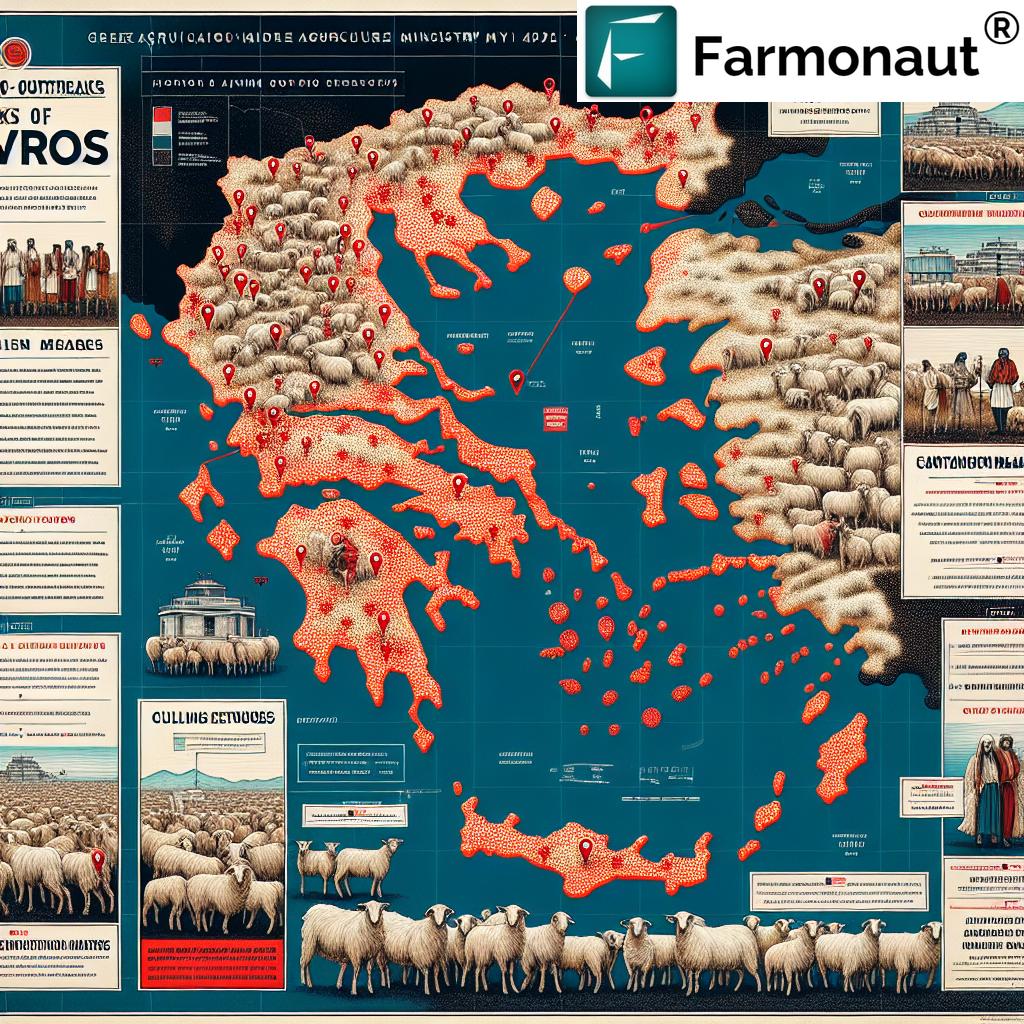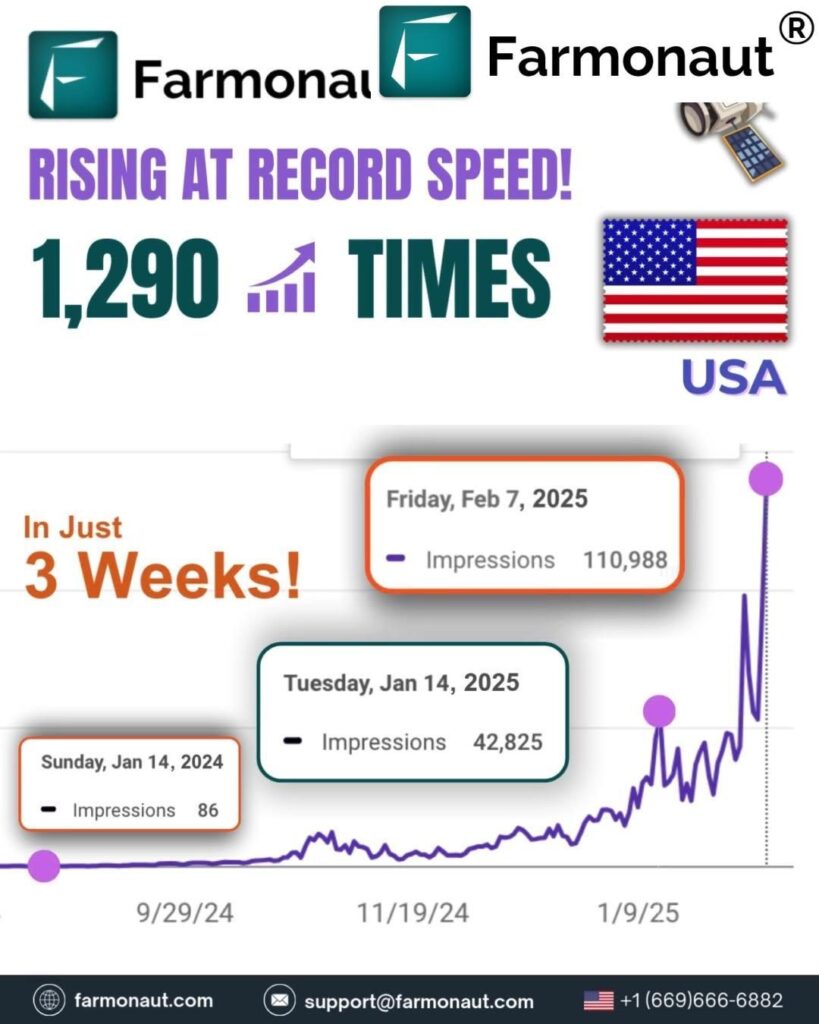Urgent: Greece’s Shocking Ban on Sheep and Goat Movement to Combat Devastating Pox Outbreak
In a startling development, Greece has implemented a nationwide ban on the transportation and reproduction of sheep and goats for a 10-day period. This drastic measure comes in response to the detection of over 100 cases of sheep and goat pox, a highly contagious viral disease affecting small ruminants. The Greece sheep and goat pox outbreak has sent shockwaves through the country’s agricultural sector, prompting swift action from authorities to contain the spread of the virus.

Greek Agriculture Ministry Takes Swift Action
The Greek Agriculture Ministry announced the implementation of the Greek livestock movement ban late on Tuesday, emphasizing that these measures are precautionary and aimed at containing the spread of the virus. Agriculture Minister Costas Tsiaras stated, “Starting today, we announce a complete ban on the movement of sheep and goats for breeding, fattening, grazing and slaughter, throughout the Greek territory for 10 days.”
It’s important to note that while the virus poses a significant threat to livestock, it does not affect humans. However, the economic implications of this outbreak could be far-reaching, particularly for Greece’s renowned feta cheese industry.
Evros: The Epicenter of the Outbreak
The majority of the detected cases have been concentrated in the northern area of Evros. The Evros animal disease control efforts have been intensified, with authorities conducting thorough investigations to determine the initial source of the outbreak. In line with European Union regulations, extensive testing is being carried out in the wider area where the cases were first detected.
As part of the containment strategy, approximately 17,500 animals have already been culled. This sheep and goat culling in Greece is a necessary but devastating measure to prevent the further spread of the disease.
Impact on Greece’s Feta Cheese Industry
The Greek feta cheese industry impact of this outbreak cannot be overstated. Greece is home to the largest goat population in Europe, and the milk from these animals is a crucial component in the production of the country’s world-famous feta cheese. This outbreak and the subsequent movement ban could potentially disrupt the supply chain and affect feta cheese production, a major economic driver for the country.
For farmers and cheese producers looking to monitor their livestock and pastures during this challenging time, Farmonaut’s satellite-based monitoring solutions can provide valuable insights.

Greek Agriculture Ministry Measures
The Greek agriculture ministry measures implemented to combat this outbreak include:
- A 10-day ban on the transportation and reproduction of sheep and goats across the country
- Intensified surveillance and testing in affected areas
- Culling of infected and potentially exposed animals
- Strict biosecurity measures for farms and transportation vehicles
- Collaboration with EU authorities for guidance and support
These measures reflect the gravity of the situation and the government’s commitment to swiftly containing the outbreak.
Animal Disease Containment Strategies
The animal disease containment strategies employed by Greek authorities are in line with international best practices. These strategies include:
- Rapid detection and diagnosis of infected animals
- Implementation of movement restrictions to prevent disease spread
- Culling of infected and exposed animals to eliminate virus reservoirs
- Disinfection of affected premises and equipment
- Enhanced biosecurity measures across the livestock industry
- Public awareness campaigns to ensure cooperation from farmers and the general public
For farmers seeking to enhance their Greek livestock disease prevention measures, Farmonaut’s API offers valuable data and insights that can aid in early detection and monitoring of potential disease outbreaks.
Previous Outbreak: Goat Plague in Greece
This is not the first time Greece has faced a serious livestock disease outbreak in recent months. In June, the country imposed similar restrictions to contain a viral infection known as “goat plague in Greece”. The recurrence of such outbreaks highlights the ongoing challenges faced by the Greek livestock industry and the need for robust, long-term disease prevention strategies.
European Goat Population and Greece’s Significance
Greece’s position as home to the largest European goat population underscores the potential widespread impact of this outbreak. The country’s goat farming industry not only contributes significantly to the national economy but also plays a crucial role in maintaining traditional agricultural practices and rural livelihoods.
Farmers and agricultural professionals can leverage Farmonaut’s API Developer Docs to integrate advanced monitoring tools into their operations, enhancing their ability to manage livestock health and productivity.
Economic Implications and Future Outlook
The economic repercussions of the Greece sheep and goat pox outbreak could be significant, affecting not only farmers and cheese producers but also related industries such as transportation and export. The temporary ban on movement and potential loss of livestock could lead to short-term supply shortages and price fluctuations in the market for sheep and goat products.
Looking ahead, the Greek agriculture sector will need to focus on:
- Strengthening disease surveillance systems
- Investing in research for better prevention and treatment methods
- Enhancing biosecurity measures across the livestock industry
- Developing contingency plans for rapid response to future outbreaks
- Supporting affected farmers and businesses during the recovery period
Conclusion
The Greece sheep and goat pox outbreak serves as a stark reminder of the vulnerabilities in livestock farming and the importance of robust disease prevention and control measures. As Greece works to contain this outbreak and protect its vital feta cheese industry, the situation underscores the need for constant vigilance and innovative approaches to animal health management.
For those in the agricultural sector looking to enhance their monitoring and management capabilities, Farmonaut offers cutting-edge solutions:
As Greece navigates through this challenging period, the resilience of its agricultural community and the effectiveness of its containment strategies will be put to the test. The coming weeks will be crucial in determining the long-term impact of this outbreak on Greece’s livestock industry and its position as a leader in European goat farming.
















